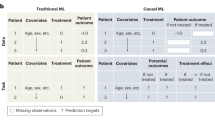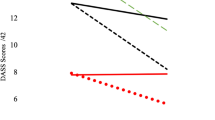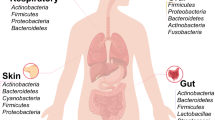Abstract
Data sources
Medline and the Cochrane Central register of controlled trails (CENTRAL).
Study selection
Randomised Controlled Trials, Controlled Clinical Trials and Cohort Studies conducted on humans investigating cannabis usage were included. Screening was performed independently by two reviewers. Only English language studies were included. Case reports, letters and historical reviews were excluded.
Data extraction and synthesis
A narrative synthesis was conducted.
Results
Seven studies were included and a range of cannabis-associated oral side effects identified.
Conclusions
Based on the limited data, it seems justified to conclude that with increasing prevalence of cannabis use, oral health care providers should be aware of cannabis-associated oral side effects such as xerostomia, leukoedema and an increased prevalence and density of Candida albicans.
Similar content being viewed by others
Commentary
The purpose of this review was to attempt to identify oral side effects that may be associated with the use of cannabis and to raise an important question, as more patients are using cannabinoids daily for medical purposes.
The legal use of cannabis in all of the varied situations is very controversial despite the knowledge that cannabis may have some beneficial effect in the treatment of the following: spasticity associated with multiple sclerosis;1 neuropathic pain associated with nerve injury as in diabetes;2 human immunodeficiency virus; herpes zoster infection and cancer.3
The use of cannabis is associated with generally mild side effects such as dry mouth, dizziness, somnolence and nausea.
Nonetheless, cannabis is associated with a variety of adverse effects, among which is psychosis. There is a valid concern over the therapeutic use of cannabinoids by adolescents and individuals who are predisposed to psychosis.4
Regardless of the side effects, the use of cannabis has been accepted worldwide. However, disagreement over its use prevails and the topic is relevant for many practitioners.
The well-organised review searched two databases in English language only without additional search. The selected studies appeared very different on the basis of design and the outcomes evaluated. There was no quality assessment performed to establish risk of bias or any further evaluation of potential confounding factors.
The results were presented in a narrative style divided according to oral findings.
The limited data that reported increased caries and the occurrence of gingivitis seen among the patients indicates a combination of factors such as lifestyle and dry mouth could be involved. The effect on salivary function appears to decrease over time, possibly related to tolerance which develops during long term use.
Cannabis users demonstrated an increased prevalence of Candida albicans as compared to tobacco smokers. This can be explained by a direct effect of the drug but by the lifestyle issues as well. The 2009 review5 did not demonstrate any association between cannabis use and oral cancer. Leukoedema appears to be more prevalent among cannabis users without any additional clinical relevance.
Despite the limited quality of the evidence gathered and that the side effects are not specific to cannabis only, it is still important for clinicians to be able to recognize the possible side effects so that patients can be guided properly.
Practice points
-
Daily use of cannabinoids may induce some oral manifestations of dental diseases. Clinicians are encouraged to look for such side effects.
References
Smith PF . New approaches in the management of spasticity in multiple sclerosis patients: role of cannabinoids. Ther Clin Risk Manag 2010; 6: 59–63.
Selvarajah D, Gandhi R, Emery CJ, Tesfaye S . Randomized placebo-controlled double-blind clinical trial of cannabis-based medicinal product (Sativex) in painful diabetic neuropathy: depression is a major confounding factor. Diabetes Care 2010; 33:128–130.
Rahn EJ, Hohmann AG . Cannabinoids as pharmacotherapies for neuropathic pain: from the bench to the bedside. Neurotherapeutics 2009; 6: 713–737.
Shapiro GK, Buckey-Hunter L . What every adolescent needs to know: cannabis can cause psychosis. J Psychosom Res 2010; 69: 533–539.
Warnakulasuriya S . Causes of oral cancer – an appraisal of controversies. Br Dent J 2009; 207: 471–475.
Author information
Authors and Affiliations
Additional information
Address for correspondence: P A Versteeg, Louwesweg 1, 1066 EA Amsterdam, The Netherlands. E-mail: p.versteeg@acta.nl
Versteeg PA, Slot DE, van der Velden U, van der Weijden GA. Effect of cannabis usage on the oral environment: a review. Int J Dent Hyg 2008; 6: 315–320.
Rights and permissions
About this article
Cite this article
Veitz-Keenan, A., Spivakovsky, S. Cannabis use and oral diseases. Evid Based Dent 12, 38 (2011). https://doi.org/10.1038/sj.ebd.6400786
Published:
Issue Date:
DOI: https://doi.org/10.1038/sj.ebd.6400786



